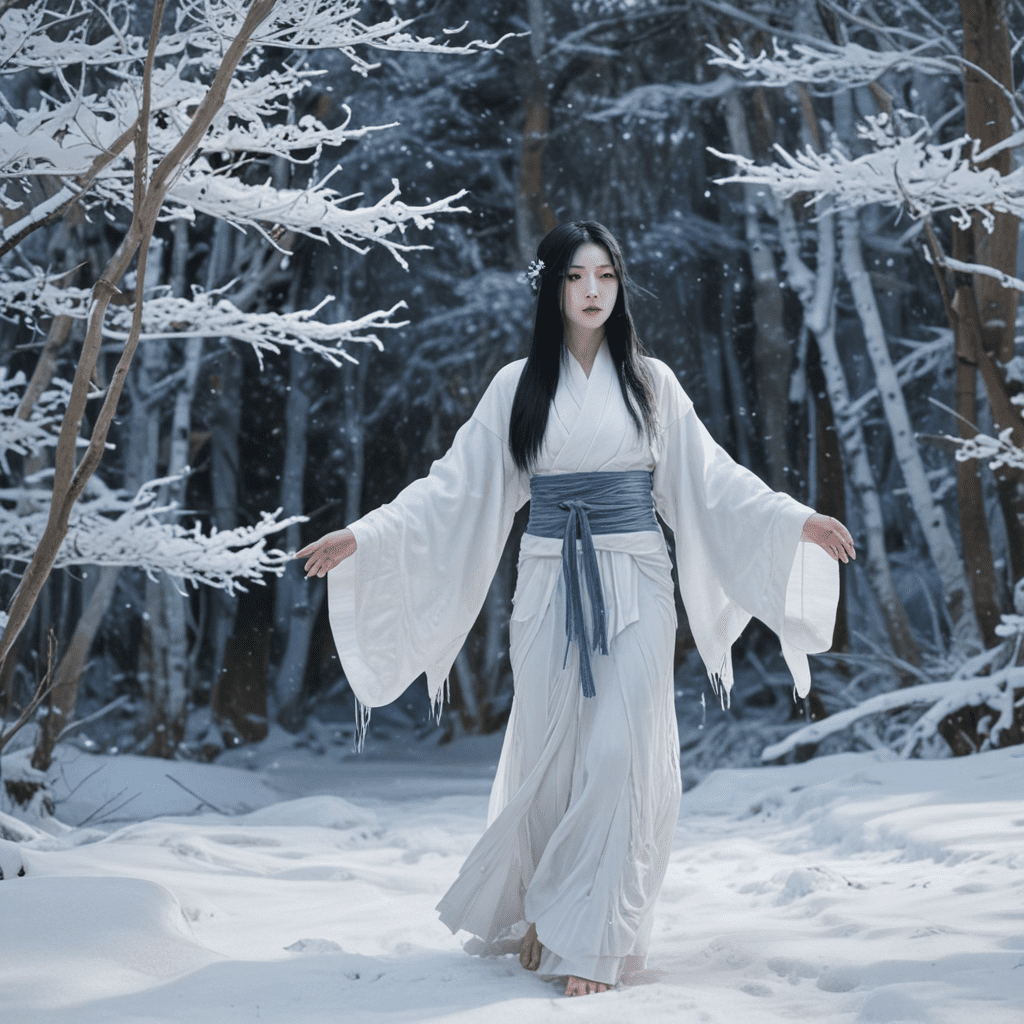The Enchanting World of Thai Mythology
Thailand, a land of stunning landscapes and vibrant culture, is also home to a rich and captivating mythology. Filled with enchanting tales of gods, goddesses, spirits, and mythical creatures, Thai mythology offers a glimpse into the beliefs and values that have shaped Thai society for centuries. From the creation of the world to the adventures of heroic figures, Thai myths provide a fascinating window into the cultural heritage of this Southeast Asian nation.
Origin and Development of Thai Mythology
The roots of Thai mythology can be traced back to ancient animistic beliefs, where spirits and deities were believed to reside in natural elements like mountains, rivers, and trees. The influence of Hinduism and Buddhism further shaped the mythological landscape, adding new deities and stories to the existing pantheon. Over time, these influences blended seamlessly, creating a unique and intricate tapestry of myths and legends.
During the Sukhothai period (1238-1438), the Thai kingdom experienced a cultural flourishing, and literature, including mythological stories, blossomed. This era saw the creation of many famous epics and tales that are still told today. The Ayutthaya period (1351-1767) witnessed the further development of Thai mythology, with the incorporation of more elaborate rituals and ceremonies into religious practices.
The Role of the Supernatural in Thai Culture
Supernatural beings and forces play a significant role in Thai culture, influencing daily life, beliefs, and customs. Spirits are believed to inhabit all aspects of the natural world, and their presence is acknowledged through various rituals and offerings. From the small spirit houses found in homes and businesses to the grand temple ceremonies, Thai people strive to maintain a balance with the supernatural realm.
In Thai mythology, spirits are often categorized into two groups: benevolent and malevolent. Benevolent spirits are believed to protect and guide humans, while malevolent spirits can cause harm or misfortune. Understanding the nature of these spirits is crucial for living in harmony with the supernatural realm, and Thai people often consult with spirit mediums or priests to ensure their well-being.
Key Figures and Deities in Thai Mythology
The pantheon of Thai mythology is populated by a diverse cast of deities, each with their own unique attributes and roles. Some of the most prominent figures include:
- Phra Phrom: The creator god, responsible for the creation of the universe.
- Phra Narai: A powerful god often associated with Vishnu in Hinduism. He is known for his protection and preservation of the world.
- Phra Indra: The king of the gods, associated with thunder, lightning, and rain.
- Phra Yama: The god of death, who judges souls in the afterlife.
These deities are often depicted in temples, statues, and religious art, serving as reminders of their power and influence.
The Creation Myth: The Beginning of All Things
The Thai creation myth tells the story of how the world came to be. According to the myth, the universe began as a vast ocean. From this ocean, a celestial being known as Phra Phrom emerged, creating the earth, the heavens, and all living beings. The myth also explains the origin of the human race, with Phra Phrom creating humans from clay.
This creation story not only explains the origin of the world but also highlights the importance of balance and order in the universe. The myth emphasizes the need for humans to live in harmony with nature and respect the divine forces that govern the world.
The Story of Phra Phrom: The Creator God
In Thai mythology, Phra Phrom holds a central position as the creator god. He is often depicted with four faces, each representing a different aspect of his power: creation, preservation, destruction, and rebirth. Phra Phrom's four faces represent the four cardinal directions and symbolize his all-encompassing wisdom and power.
Phra Phrom's creation story is a powerful reminder of the cyclical nature of life. The myth highlights the importance of balance and order in the universe, and encourages humans to live in harmony with nature and the divine forces that govern the world.
Phra Phrom is a revered figure in Thai culture, and his story is often told at religious ceremonies and festivals. Temples dedicated to Phra Phrom are found throughout Thailand, where people come to pay their respects and seek blessings for good fortune and prosperity.
The Importance of Karma and Reincarnation
The concepts of karma and reincarnation are central to Thai mythology and have a profound impact on Thai beliefs and values. Karma refers to the principle of cause and effect, where every action has a consequence, both in this life and in future lives. Reincarnation is the belief that after death, the soul is reborn into a new life, with the quality of that new life determined by the individual’s karma.
The belief in karma and reincarnation encourages Thai people to live virtuously and cultivate good deeds, as these actions will lead to a better life in the future. Compassion, generosity, and selflessness are highly valued, as they are believed to lead to positive karma and a favorable rebirth.
This belief system emphasizes the importance of responsibility for one's actions and encourages a focus on personal development and spiritual growth. It also provides a sense of hope and possibility, as even if someone experiences hardships in this life, they can strive for a better future through virtuous actions.
The Influence of Hinduism and Buddhism
Thai mythology is a rich tapestry woven from the threads of ancient animistic beliefs, Hinduism, and Buddhism. These belief systems have blended over centuries, creating a unique and vibrant mythological landscape.
Hinduism, with its elaborate pantheon of gods and goddesses, has left a strong imprint on Thai mythology. Many Hindu deities, such as Brahma, Vishnu, and Shiva, are also venerated in Thai culture, often under different names and with their own unique interpretations.
Buddhism, with its emphasis on enlightenment, compassion, and the interconnectedness of all beings, has also significantly influenced Thai mythology. Buddhist teachings about karma, reincarnation, and the cycle of life and death are deeply ingrained in Thai beliefs. The stories of Buddha's life and teachings, along with the many Buddhist folktales and legends, have enriched Thai mythology with themes of spiritual growth, self-discovery, and the pursuit of wisdom.
Folklore and Legends: Tales from the People
Beyond the stories of gods and goddesses, Thai mythology is also rich in folklore and legends passed down through generations. These tales often feature mythical creatures, brave heroes, and wise sages, and they offer insights into the values, beliefs, and fears of the Thai people.
Some well-known stories include:
- The Legend of Nang Nak: A tragic love story about a woman who becomes a ghost after dying in childbirth. This tale explores the themes of love, loss, and the power of the supernatural.
- The Story of Khun Chang Khun Phaen: A passionate love triangle set against the backdrop of ancient Thailand. This story explores themes of jealousy, revenge, and the consequences of unchecked emotions.
- The Tale of the Giant Turtle: A story about a giant turtle who carries the world on its back, illustrating the importance of nature and its interconnectedness with humanity.
These folklore stories offer a window into the lives and experiences of ordinary people and their interactions with the supernatural world. They reflect the creativity, imagination, and wisdom of the Thai people, and they continue to be told and retold, passing on cultural knowledge and values from one generation to the next.
Themes of Love, Loss, and Triumph in Thai Myths
Thai mythology is filled with stories that explore the complexities of human emotions, including love, loss, and the triumph of good over evil. Themes of love are often central to these myths, with stories celebrating the power of romantic love, family bonds, and loyalty to one's community.
Stories of loss and betrayal serve as cautionary tales, reminding people of the importance of virtue and ethical behavior. The theme of triumph over adversity is a recurring motif, showcasing the resilience of the human spirit and the potential for redemption even in the face of great challenges.
These themes resonate with audiences on an emotional level and offer valuable lessons about life, love, and the human condition. They offer hope and inspiration, reminding us that even in the face of adversity, we can overcome challenges and strive for a better future.
FAQ
What are some popular mythical creatures in Thai mythology?
- Naga: Serpent-like creatures often associated with water and fertility.
- Yak: Giant, powerful beings with supernatural powers.
- Kuman Thong: Spirit of a child believed to bring good luck and prosperity.
- Phi: Ghosts or spirits who can either be benevolent or malevolent.
- Garuda: Half-human, half-bird creatures often associated with the god Vishnu.
How does Thai mythology influence daily life?
Thai mythology influences many aspects of daily life, from rituals and ceremonies to art and literature. People often consult spirit mediums or priests for guidance and protection, and they may offer offerings to spirits or deities to ensure good fortune and ward off misfortune.
What are some important festivals related to Thai mythology?
- Songkran: The Thai New Year festival, which includes water splashing rituals and ceremonies honoring Phra Phrom.
- Loy Krathong: A festival where people float decorated baskets on the water to honor the spirits of the river.
- Phi Ta Khon: A colorful festival involving masked dancers and parades, believed to appease spirits.



